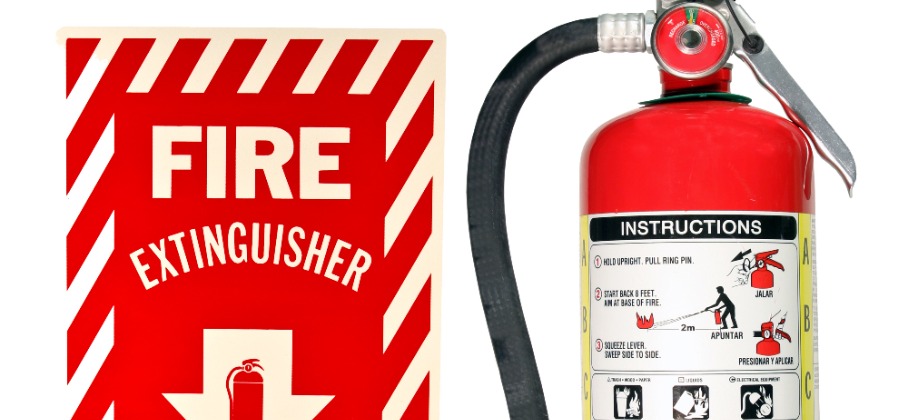Portable Fire Extinguishers
When there is a fire, your focus should be on leaving the building and calling 9-1-1. Portable fire extinguishers are made for small fires with very little smoke. When used properly, an extinguisher can save lives and property by putting out a small fire or containing it until firefighters arrive.
Warning! |
|
Your safety is the most important thing. Only think about using an extinguisher if:
|
When to Use |
|
Only use an extinguisher if:
|
Know How to Use an Extinguisher |
|
P-A-S-S (Pull, Aim, Squeeze, Sweep) |
|
To use a fire extinguisher:
Note: Have the extinguisher serviced, even if you did not empty the extinguisher. |
Choose the Right Extinguisher |
|
There are five classes of fire. Fire extinguishers must be labelled to show the class of fire they can extinguish. Class AOrdinary combustibles such as paper, wood, rubbish, drapes, and upholstery. Class BFlammable liquids such as gasoline, oils, solvents, paints, and flammable gases. Class CElectrical fires involving Class “A” or Class “B” materials and live electrical power – overheated wiring, fuse boxes, stoves, motors etc. Class DCombustible metal fires. Magnesium and Titanium are the most common types of metal fires. Once a metal ignites do not use water to extinguish it. Class KFires that involve cooking oils, grease or animal fat and can be extinguished using Purple K, the typical agent found in kitchen or galley extinguishers.
The extinguisher must be tested and listed by The Underwriters' Laboratories of Canada (ULC). Look for the ULC label on the extinguisher. |
Where Should I Keep the Extinguisher |
|
Install your extinguishers in plain view, above the reach of children, near an exit, and away from stoves and heating appliances. Best places for your extinguishers are in the kitchen, workshop, upstairs, at the top of a basement stairwell, and in the garage. |
Extinguisher Maintenance |
|
If your extinguisher needs service, please check on-line or the Yellow Pages for fire protection service companies. |
Extinguisher Disposal |
|
Fire extinguishers, even when empty are hazardous waste. Take them to any of Northumberland County's HHW depots. |
